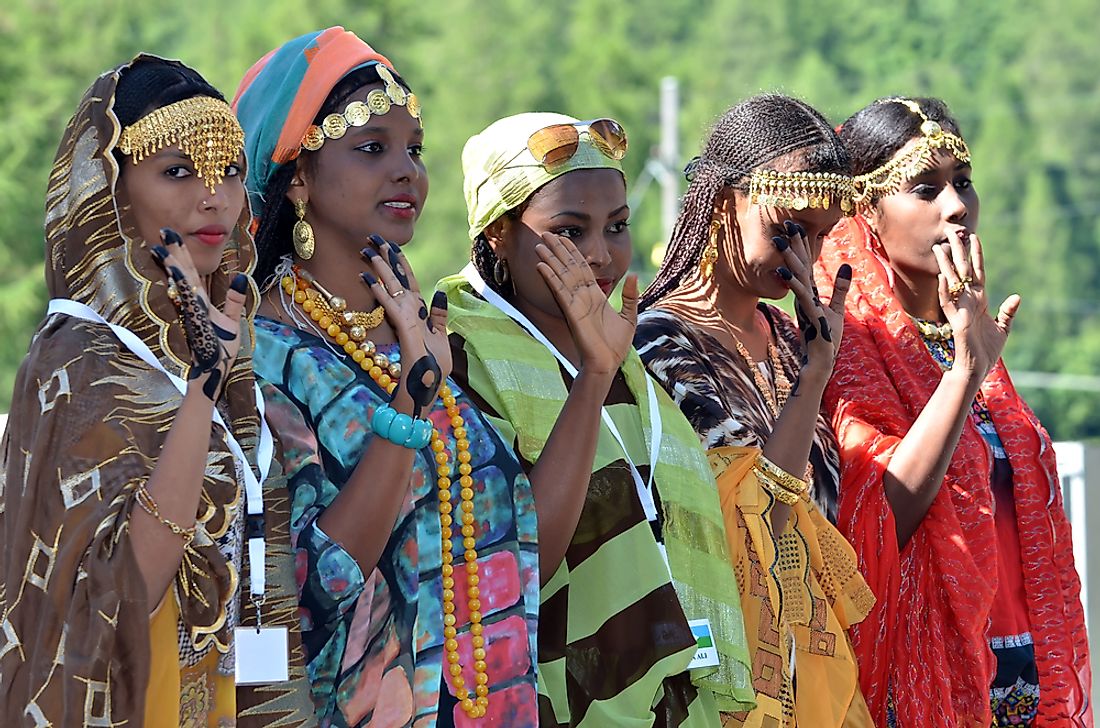Largest Ethnic Groups In Djibouti

Djibouti is a country on the African continent, located in the Horn of Africa and surrounded by Eritrea, Ethiopia, and Somalia. The country is relatively small with a population of 828,324. Approximately three-quarters of the population live in the urban centers, the remainder live in rural areas and raise livestock. Major languages spoken include Somali, Afar, Arabic, and French. The country is considered multi-ethnic and has a rich history. This article takes a look at these topics.
History Of Djibouti
To understand the ethnic diversity of this country, a brief summary of its history is first necessary. This region has a long history of immigrants and trade that begins in ancient times when it was part of an Egyptian kingdom. This land was later taken over by Muslim sultanates, dating back as far as 1000 AD and ending with the Kingdom of Adal which fought against the Christian Abyssinian Kingdom. This fighting lasted for hundreds of years and ended in the mid-1500’s. The majority of the Adal peoples were of Somali, Afar, Harari, and Arab descent. Somali and Afar Sultans ruled the area for the next 300 years or so until they gave away their territories via several treaties with the French government.
French Somaliland was founded between 1883 and 1887 and worked to build a railroad that connected the area to Dire Dawa and Addis Ababa. Nearly 200 years after its establishment, French Somaliland was renamed French Territory of the Afars and the Issas in 1967. This was also around the time that native Djiboutians began protesting for freedom which was granted in 1977. The colonization of the area helps to explain the European ethnicity found in the region today.
Somali Ethnic Group
The Somali ethnic group makes up 60% of the population of Djibouti. These individuals mainly belong to sub-clans of the Dir clan which stretches throughout Somalia, Ethiopia, Djibouti, and Kenya. The biggest sub-clan in Djibouti is the Issa clan who have a long history living as nomadic cattle herders. The Issa make up about half of the total population in the country. When Djibouti gained its independence, this group desired a union with Somalia, but that did not come to pass. The Issa fought with the Italians when the Europeans invaded Ethiopia in the 1930’s, this earned the clan access to weapons, military training, and increased trade of their cattle.
Afar Ethnic Group
The second largest ethnic group is the Afar at 35% of the population. The northern region of Djibouti is where the majority of the Afar live. Their primary language is Saho-Afar, and they traditionally live a nomadic lifestyle. It is believed that they arrived in the area around 300 AD from the Arabian peninsula and by crossing the Red Sea. They have a history with the previously mentioned Adal Sultanate. Afar interests are represented by the rebel group Afar Revolutionary Democratic Front Party who started a civil war with the government in 1991 that lasted until 1994.
Minority Ethnic Groups
The remaining 5% of the population is made up of people of Ethiopian, Yemeni, Arab, French, Italian and other ethnicities. Those individuals of French and Italian descent have been in the region since the days of the French colony and the Italian invasion. The two European groups fought over borders between French Somaliland and Italian East Africa during World War II. People of Ethiopian, Yemeni, and Arab descent are ancestors of the Sultanate families that once ruled the areas.
Largest Ethnic Groups In Djibouti
| Rank | Ethnic Group or Nationality | Share of Djiboutian Population |
|---|---|---|
| 1 | Somali | 60% |
| 2 | Afar | 35% |
| 3 | Ethiopian, Yemeni Arab, French, Italian, and Others | 5% Combined |











